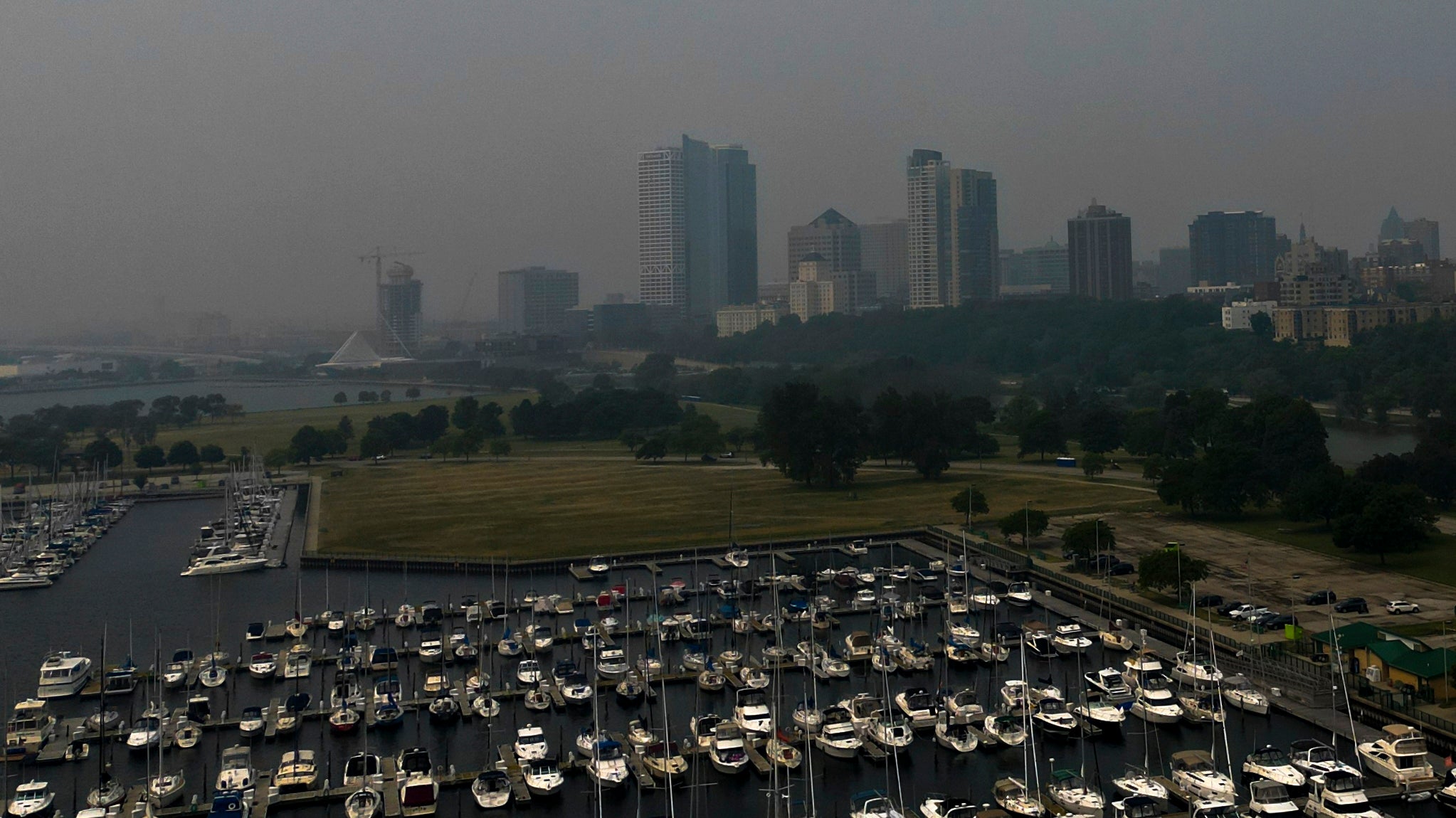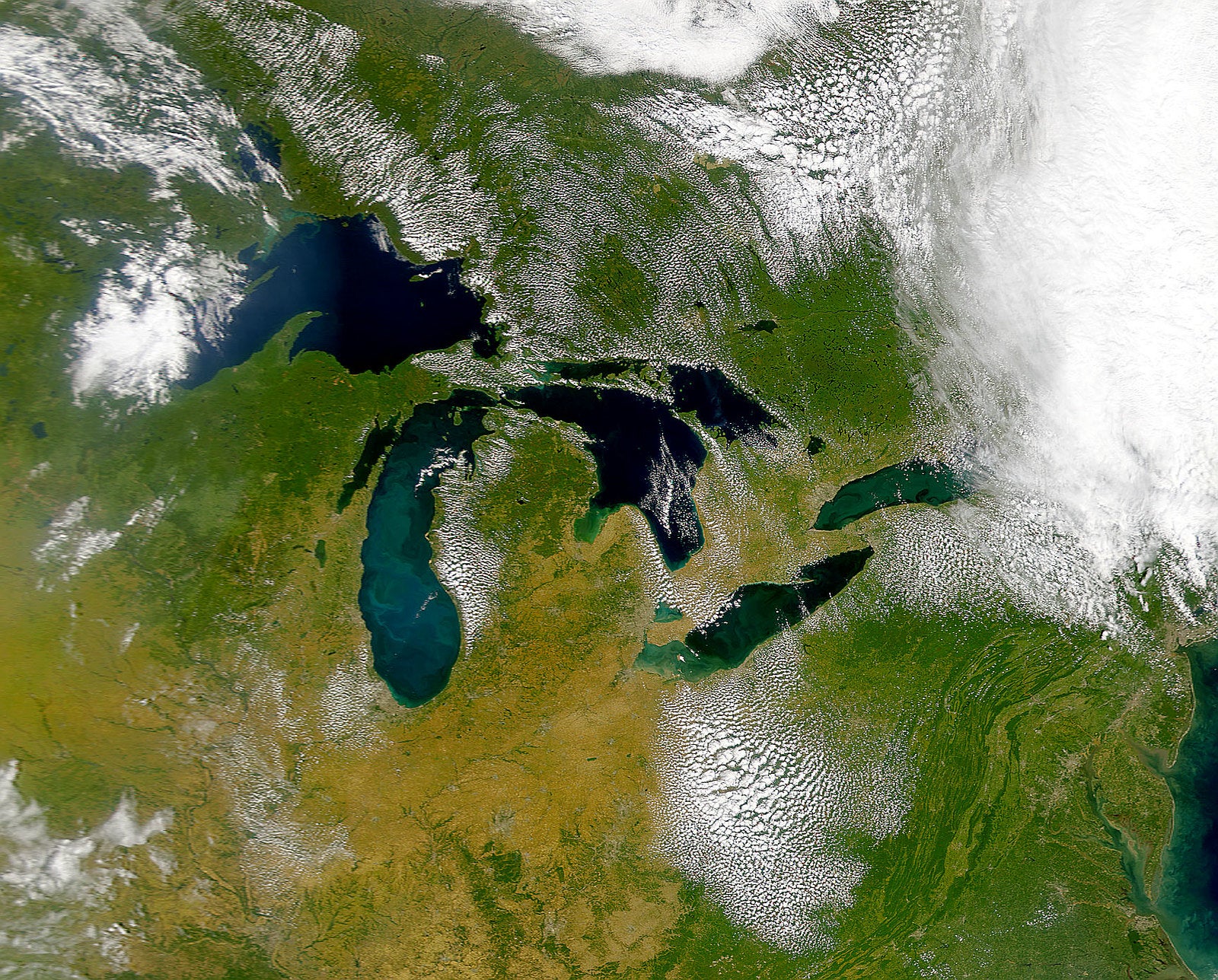As the world crushed global heat records last year, a warmer than normal December edged 2023 into the top five hottest years on record for Wisconsin in almost 130 years.
Steve Vavrus, director of the Wisconsin State Climatology Office, said Wisconsin tied 1987 to become the fourth-warmest year on record since 1895. The statewide average temperature for the year was 46.3 degrees Fahrenheit, which was roughly 3.6 degrees Fahrenheit warmer than the long-term average. Only 2012, 1998 and 1931 were hotter.
As of November, Vavrus said 2023 was shaping up to be the 10th-warmest year the state had ever witnessed.
News with a little more humanity
WPR’s “Wisconsin Today” newsletter keeps you connected to the state you love without feeling overwhelmed. No paywall. No agenda. No corporate filter.
“To jump from 10th to fourth on the basis of one really warm month was kind of a surprise,” Vavrus said. “This was globally by far the warmest year on record, so Wisconsin being one of the top five warmest years is fitting.”

2023 shattered global heat records
Last week, the European climate agency Copernicus found 2023 was 1.48 degrees Celsius, or nearly 2.7 degrees Fahrenheit, warmer than pre-industrial times. The rise in global temperatures has roughly reached the limit of 1.5 degrees Celsius that nations sought to maintain under the Paris climate accord in 2015 to avoid the worst effects of climate change.
On Friday, scientists with NASA and the National Oceanic and Atmospheric Administration reported that global surface temperatures were 2.12 degrees Fahrenheit, or 1.18 degrees Celsius, above the 20th century average, beating out 2016 as the hottest year on record.
“We’re looking at this and we’re frankly astonished,” said Gavin Schmidt, director of the NASA Goddard Institute for Space Studies.
Every month from June through December ranked as the warmest month on record, according to Russ Vose, global monitoring chief for NOAA’s National Centers for Environmental Information.
December marked the warmest on record in Wisconsin with an average temperature of 32.3 degrees Fahrenheit. Vavrus said it’s the first time in December that the state averaged a temperature above freezing.
El Niño drove temps higher, but it doesn’t explain 2023
Vavrus and other climate scientists note El Niño, which brings warming effects, played a role in driving temperatures higher.
“That does provide an extra kick to the warming trend that we’re seeing because of human-induced pollution,” Vavrus said. “That’s one reason why 2023 was even warmer than some of the more recent years, but it doesn’t explain the long-term warming trends.”
Scientists with NOAA and NASA also noted that other big El Nino years have never had such a significant effect on global temperatures, saying more work is needed to determine what happened in 2023.
While the world had its hottest summer, Vavrus said Wisconsin had fairly normal temperatures as drought conditions covered much of the state. However, he noted an “especially bad” heatwave hit western and southern Wisconsin in August.
“It was the first time in over 10 years that our temperature anywhere in Wisconsin exceeded 100 degrees,” Vavrus said.
In late August, Boscobel in southwestern Wisconsin recorded temperatures as hot as 105 degrees.
Extreme heat kills more people than all other disasters
Claire Gervais, a family medicine physician with Healthy Climate Wisconsin, said extreme heat kills more people than all other weather events combined.
Gervais said the biggest worry is potentially fatal heatstroke.
“The body temperature rises rapidly, and the sweating mechanism in the body fails,” she said. “And so the body can’t cool down.”
Gervais said urban areas contend with the heat island effect, retaining heat due to more paved surfaces and less green space.
“Those that live in urban areas are most vulnerable, especially elderly and those that are in poverty, if they don’t have access to air conditioning,” she said.

Beyond heat, 2023 witnessed other records
The heat was not the only notable event in 2023, which saw its wettest start to the year on record. Wisconsin had its snowiest winter last year with a statewide average of more than 80 inches of snow. By spring, conditions had flipped to become one of the driest periods the state has ever seen from May to August.
“So really just incredible whiplash between too wet and then too dry,” Vavrus said.
It marked the first time that Wisconsin saw exceptional drought since the U.S. Drought Monitor began in 2000.
Vavrus added the state saw its worst recorded year for air quality as Canadian wildfires sent smoke billowing into the state, causing Wisconsin to have the worst air quality in the nation one day in late June.
NOAA noted Canadian wildfires burned more than 45 million acres last year, which was 2.5 times the previous record.
Data from UW Health urgent care centers indicates a 4.5 percent increase from 2022 in visits for acute respiratory infections during a 9-week period spanning June and July last year.
Overall, the nation witnessed 28 billion-dollar disasters last year, costing more than $90 billion. That surpassed the previous record of 22 events set in 2020.
“I’m fearing that with the warm climate and all these extremes we’ve had, that there’s the risk that people will just start to get numb,” Vavrus said. “And these records won’t have the impact on people that they ought to.”
Wisconsin Public Radio, © Copyright 2025, Board of Regents of the University of Wisconsin System and Wisconsin Educational Communications Board.







